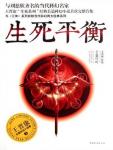Chapter 1 wedge 1
In the summer of 1977, a director of the World Health Organization, Mr. von Hausert, a German, crossed the border from Djibouti to a remote village in northern Somalia, and found the young man named Ali Maumalin .The black man was shirtless, with a distended belly from malnutrition, and smallpox marks all over his face and body.Housert knew that this area was very poor and backward. When the smallpox immunization method was popularized in most of the world, the ancient method of blowing powder was still used to prevent and control the terrible smallpox, that is, the dried scabs of smallpox patients were ground into powder and blown. into the nostrils of healthy individuals.But this method is not safe enough, and Ali Maomalin was not spared.Fortunately, his strong body finally defeated the smallpox virus and saved him from death.
When Mr. Housert took a picture of him, Maomalin smiled silly, not knowing that he was recording history.This made the passionate Mr. Housetter feel very sorry.He asked an interpreter to tell the black man that this photo would make his name go down in history.Smallpox is a severe infectious disease, caused by the smallpox virus, with a mortality rate as high as 25%. It has been raging on the earth for at least 2,000 years, and smallpox scars were found on the mummy of the Egyptian pharaoh Ramses.The British historian Macquarie once called it "the loyal accomplice of death." Counting from the invention of vaccinia vaccination by Jenner, the father of immunity, in 1796, after 180 years of hard work, human beings have finally eradicated smallpox, and Mr. Ali Maomalin as a The last smallpox patient in the world has inadvertently become a witness to the progress of mankind for 2,000 years.
The Somali interpreter was trying to translate the German's long conversation, and he wondered how much the obtuse Negro understood.Mr. Housert regretted again that it was a pity that he came late, otherwise he would have taken a sample for the last smallpox virus and stored it in the virus gene bank in Geneva.The black man obviously understood and chattered away.The translator translates confusedly:
"He said that your men had come once, scraped off some of the pustules on his body, and took them away. He said he would store them in some bank, and he paid him fifty dollars for that. What a generous sir."
Haussett is curious. As far as he knows, the health community has never published any reports about interviewing Maomalin and preserving virus samples.He asked the interpreter to reconfirm, and the interpreter, after a long cross-examination, said:
"Yes, that's what he meant."
"Then ask him, what kind of man is he? Where did he come from? What's his name?"
The interpreter told Housert after cross-examination:
"He said they came a month ago. They were three white men in suits. They were all thin, with long narrow faces and hooked noses. He didn't know anything else."
Mr. Housert was sorry, but knowing he couldn't get more information out of the villager, he paid him $50 and said goodbye.Mao Malin was very pleasantly surprised by another windfall, and smiled from ear to ear. The villagers were also envious, and regretted why he didn't get smallpox.
On the way home, Housert and the interpreter were still discussing this matter.The driver, who was struggling with the terrible road conditions, interjected that he might have seen the three men.When he was running this road a month ago, he saw a car parked on the way, and three white passengers were praying facing the northeast, and they were dusting themselves very seriously.The driver often stays with Muslims and knows that this is the "Tajam" ceremony in Muslim worship.The appearance of those three people is also typical of Arabs. In this way, these three white people are probably Arabs.
When he returned to Geneva he asked some of his Arab colleagues, but no one knew about it.The World Health Organization had extracted smallpox samples a few years ago and divided them into three parts and stored them in Switzerland, the United States and Russia.Therefore, whether Mao Malin's smallpox virus is preserved or not has only historical significance and no scientific significance.As time went on, Mr. Housert also forgot about it.

